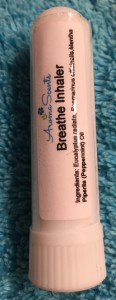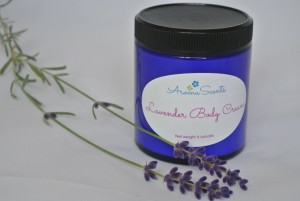5 Ways To Use Essential Oils for Relaxation
 If you’re human, you’ve been stressed. Whether it’s an accumulation of little irritants or an unexpected tragedy, stress has reared its ugly head in your life. It’s no respecter of persons. Almost every age group is vulnerable to certain stressors.The question is, How do you handle it?
If you’re human, you’ve been stressed. Whether it’s an accumulation of little irritants or an unexpected tragedy, stress has reared its ugly head in your life. It’s no respecter of persons. Almost every age group is vulnerable to certain stressors.The question is, How do you handle it?
Does it rule your life, or do you take measures to combat it? I’m hoping it’s the latter, because I’ve got some suggestions of essential oils for relaxation.
You probably already know that short- and long-term stress affect bodily functions such as heart rate, breathing, blood pressure, digestion, adrenal production, and neurological processes. Short-term stress can actually help us to react quickly in fight-or-flight situations. Long-term stress, however, can be detrimental to our health if not handled properly. So let’s cover some general tips and then explore aromatherapy for stress relief.
General Tips to Handling Stress
- Energize with Exercise. If you’re feeling revved up, destress with a physical activity. Three of my favorites are Nordic pole walking, cycling, and paddle boarding. Find what you like and get out there and move, as long as you’re healthy enough for physical activity. Check with your doctor if there’s any question.
- Add dietary and botanical supplements. Taking a multivitamin may help compensate for any shortfalls in your diet. I like to take a natural foods-based supplement.
- Eat healthier. Cut down on sugar and eat more leafy greens and other fresh fruits and vegetables.
- Calm Your Spirit. I like to read scripture, memorize Bible verses, and pray to help me calm down. Deep breathing exercises also help to slow down your body and mind.
Essential Oils for Stress Relief
In the late 1960s, Herbert Benson, MD, found a counterbalancing effect to the stress response called the relaxation response.
Aromatherapy is one technique that can be used to elicit the relaxation response. This can help bring about many positive changes in the body, including reduction of blood pressure, slowing of heart rate, increased production of endorphins, and improved insulin response just to name a few things. So now let’s look at five different ways you can use aromatherapy to help alleviate stress:Five Methods of Aromatherapy Application
 Aromatherapy Inhaler — An inhaler is a small plastic bullet-shaped container with a cotton center infused with essential oils. Aromatherapists make these for all different purposes, including stress, allergies, and colds. I love inhalers as they easily fit in your pocket or purse. When you feel the need, just whip it out and take a whiff. They are quick, convenient, and last for months.
Aromatherapy Inhaler — An inhaler is a small plastic bullet-shaped container with a cotton center infused with essential oils. Aromatherapists make these for all different purposes, including stress, allergies, and colds. I love inhalers as they easily fit in your pocket or purse. When you feel the need, just whip it out and take a whiff. They are quick, convenient, and last for months.- Essential Oil Salt Baths — If you don’t have a tub in your home, no worries. Anyone can do a foot or hand salt bath and still get wonderful results. I, unfortunately, am in the no-bathtub club, so I purchased a large bowl and I use that. A current favorite of mine is a lemongrass and tea tree oil foot bath (recipe on link) with Epsom salts (or sea salts). Lavender is another favorite. *Caution: People with high blood pressure or diabetes need to consult their doctor before using salt baths.
- Diffusors — Diffusing essential oils with an ultrasonic or nebulizer-type diffuser is a wonderful way to quickly absorb the benefits of essential oils. Rather than letting it run continuously, try running it for about 15 minutes out of every hour. If you don’t have a diffusor, put a few drops in a bowl of warm water and set it in a place where neither children nor pets can get into it.
- Direct palm inhalation — In this method, put a drop of essential oil in the palm of y
 our hand, rub both hands together, and inhale the fragrance. I like to use lavender for this, since it is safe to use undiluted.
our hand, rub both hands together, and inhale the fragrance. I like to use lavender for this, since it is safe to use undiluted. - Massage with essential oils diluted in oil, cream, or salve — One of my favorite ways to use lavender is in an essential oil cream that I quickly make using an unscented pre-made aloe cream. I apply this after showering and enjoy the delightful scent for the next few hours. You can also try any of the other oils I have listed below or a synergy of a few of them. When you’re creating a blend for stress, it’s important that you like the smell, because even if an oil is know for it’s stress-reducing properties, if you don’t like its smell, it will most likely make you feel more stressed.
Here are a few essential oils for stress that have used historically: bergamot, lavender, Roman chamomile, marjoram, ylang ylang, geranium, jasmine, rose, vetiver, and cypress. This list is by no means comprehensive, just some to get you started.
Try any or all of the above suggestions the next time you’re feeling stressed, and please share any suggestions you have in the comments below! If you’d like me to create a blend for you, please contact me or check out my workshops for hands-on creation of your own products.
